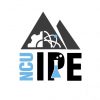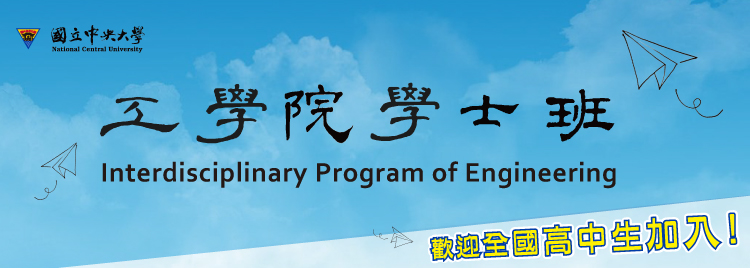Introduction
Thanks to the development of engineering technology, the problems encountered in human life can be solved through technological innovations, such as sustainable and secure environments in the face of energy scarcity and climate change and other smart technologies. In Taiwan, the Executive Yuan has launched a series of research and improvement projects related to sustainable disaster prevention and extreme weather damage to national territory. In recent years, in order to accelerate industrial transformation and upgrades, the five plus two innovative industries of “Asia’s Silicon Valley,” “Intelligent Machinery,” “Green Energy Technology,” “Biotechnology and Medicine,” “National Defense Industry,” “New Agriculture,” and “Recycling Economy” have been selected as the core for driving the growth of next-generation industries in Taiwan, with to the goal of achieving the vision of a digital nation, smart island, high-value service industry, non-nuclear home, and energy saving and carbon reduction.
The development of these new industries, which are vital to both the nation and overall society, requires interdisciplinary innovative talents with integration ability. However, the curriculum of existing engineering departments is primarily focused on cultivating professionals, and the current curriculum structure cannot accommodate students who are interdisciplinary and self-teaching learners. The university is a comprehensive research university with disciplines covering the fields of humanities, science and technology, management, law and politics, etc. In terms of teaching improvements, the University has recently taken measures at both the university and the department level by coordinating inter-institutional curricula, establishing interdisciplinary programs, improving the curriculum. etc. Therefore, the School of Engineering has established a bachelor’s degree program that integrates the existing courses of the university and inter-departmental courses and some university-level courses to guide students to develop independent thinking, independent learning, interdisciplinary teamwork and communication, and problem-solving skills, as well as to provide students with additional skills in such interdisciplinary fields as “intelligent machinery,” “energy materials,” “sustainable disaster prevention,” and “green technology” through a comprehensive and carefully planned curriculum. In order to improve the effectiveness of interdisciplinary learning, this program emphasizes hands-on teaching and learning, and students are assigned a mentor professor after their sophomore year to guide them in course selection and projects so that they can learn through a problem- and project-oriented approach. (PBL: Problem & Project Based Learning)
Prospects
- Further study: in the university or domestic and foreign institutes in related fields, such as the School of Engineering, the School of Information Technology, the School of Management, and other related institutes.
- Certificates: certificates of civil engineering, machinery, chemical engineering, environmental engineering and other related fields.
- Employment: technical professionals in public institutions, industrial and private R&D units, high-tech industries, educational institutions, or high-tech entrepreneurship.
Location
Airplane
Get to Taoyuan high speed rail station by Taoyuan Metro from Taoyuan Airport. Then transfer to the city bus 172 or 173 heading for NCU.
Taiwan Railways Administration
Get off at Zhongli Train Station. Take a city bus or a taxi (approx. NT$250) to NCU within 20~30 minutes.
Taiwan High Speed Rail
Get off at THSR Taoyuan Station. Take direct bus No. 172 or No. 173 at Bus Platform 8 to reach NCU (approx. one per 30 mins, a 15- to 20-minute ride). You may also take other buses heading for Zhongli City, where a connection is needed.
No. 172 and No. 173 operate between Zhongli City and NCU, with an extended line to THSR Taoyuan Station at certain hours.
Buses depart from THSR Taoyuan Station to downtown Zhongli: No. 170, 171, 5089. Fare: NT$26.
Driving directions: Start from Gaotie South Road to use Provincial Highway No. 31, turn left when reaching Jhongjheng Rd., and in a few minutes, turn right to Zhongda Road.
Intercity Bus
In Zhongli, there are two main intercity (freeway) bus stops, with service centers of each bus company locating nearby. Please check routes and timetables according to the city of your departure/destination before traveling.
Since June 23, 2014, Highway Bus 9025 at specific times operates between Taipei (Songshan Airport) and NCU. Fare: NT$75.
City Bus
City Bus Routes No. 132, 133, operate between downtown Zhongli and NCU (20 to 30 minutes per ride). Routes 132 (at specific hours) continue to THSR Taoyuan Station, and then back to campus and the city.
Stops on campus: Guardroom of Central University, Kwoh Ting Library, Zhongda Lake,Yi-Ren-Tang of Central University, The Back Door of Central University, Observatory of Central University
Fare: Adult NT$18/Child NT$9. Pay cash or with EasyCard/TWSC Card (Sense your card both when boarding and when alighting).
Taoyuan City Bus Real-Time Information System
For more information, Please refer to the website of the General Service Division.



